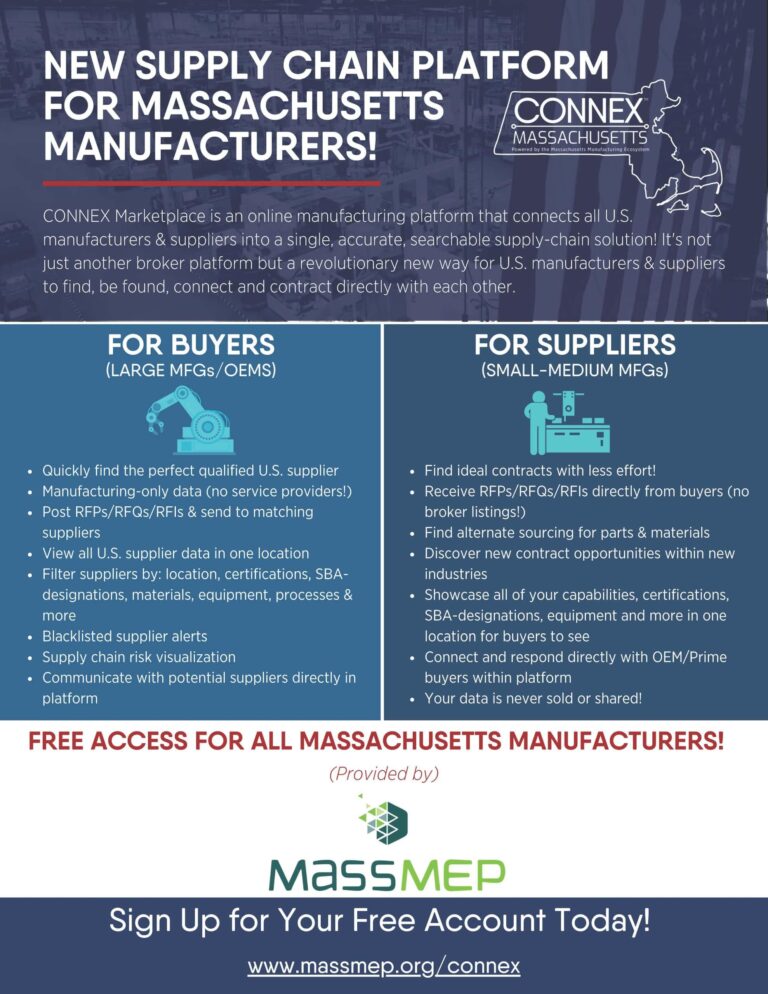Massachusetts industries are grappling with notable supply chain disruptions that threaten to slow production and drive up costs across multiple sectors. From manufacturing hubs to construction and retail distribution, businesses are facing delays in obtaining critical materials and components. These ongoing supply chain struggles are prompting concerns about economic growth and job stability in the region, highlighting the urgent need for strategic solutions to restore the flow of goods and maintain Massachusetts’ industrial vitality.
Table of Contents
- Supply Chain Bottlenecks Ripple Through Massachusetts Manufacturing and Technology Sectors
- Logistical Challenges and Rising Costs Strain Local Small Businesses and Retailers
- Expert Insights on Mitigating Disruptions Through Diversification and Digital Solutions
- Policy Recommendations Focus on Infrastructure Investment and Regional Collaboration
- Wrapping Up
Supply Chain Bottlenecks Ripple Through Massachusetts Manufacturing and Technology Sectors
Massachusetts’ manufacturing and technology sectors are grappling with persistent supply chain bottlenecks, causing significant delays and operational disruptions across key industries.Manufacturers report extended lead times for critical components, forcing many to adjust production schedules and reconsider inventory strategies. The ripple effects extend beyond manufacturing floors, impacting innovation cycles and product launch timelines in the state’s vibrant technology landscape, which heavily relies on timely access to specialized parts and materials.
Industry leaders identify several core challenges contributing to the strain:
- Global shortages of semiconductor chips and raw materials
- Transportation delays linked to port congestion and freight backlogs
- Volatile demand fluctuations amid shifting market dynamics
Efforts to diversify supply chains and invest in local sourcing are underway, but experts warn that systemic disruptions may persist well into the near future, emphasizing the need for strategic adaptation and closer collaboration across the sector.
Logistical Challenges and Rising Costs Strain Local Small Businesses and Retailers
Local small businesses and retailers across Massachusetts are grappling with an unprecedented wave of logistical obstacles that disrupt daily operations and impose severe financial strain. Delays in shipments, scarcity of key materials, and fluctuating freight costs have become the norm, forcing many to reassess their supply strategies. These challenges hit hardest in sectors where timing and inventory precision are critical, from boutique shops to neighborhood grocery stores, undermining their ability to meet customer expectations and maintain steady cash flow.
Amid these pressures, businesses are adopting new coping mechanisms, including:
- Negotiating option supply routes and local sourcing partnerships
- Increasing inventory holdings despite higher carrying costs
- Passing on costs to consumers carefully to avoid losing competitiveness
- Leveraging technology for real-time tracking and demand forecasting
While these approaches can alleviate some immediate impacts, the cumulative effect of rising logistics expenses risks long-term viability for many small enterprises striving to recover from recent economic shocks.
Expert Insights on Mitigating Disruptions Through Diversification and Digital Solutions
Industry analysts emphasize that diversifying supply chains across multiple global regions is crucial to safeguarding Massachusetts’ key sectors against unforeseen disruptions. By spreading procurement and production across varied suppliers, companies can reduce their vulnerability to localized crises, whether geopolitical tensions, natural disasters, or logistical bottlenecks. Experts note that such diversification mirrors financial portfolio strategies, aiming to balance risk and enhance resilience, though not without potential trade-offs in efficiency. This approach allows firms to recalibrate quickly when traditional routes or suppliers falter, ensuring continuity in product flow and mitigating costly delays.
Alongside diversification,the integration of advanced digital tools is gaining traction as a complementary strategy. Technologies such as real-time tracking, AI-driven demand forecasting, and blockchain-enabled transparency empower companies to anticipate and respond swiftly to emerging threats. Key benefits include:
- Enhanced visibility into complex supply networks
- Accelerated decision-making based on predictive analytics
- Improved collaboration among dispersed stakeholders
This fusion of strategic supplier diversification with smart digital solutions positions Massachusetts industries to not only withstand current supply chain disruptions but also adapt proactively to future challenges.
Policy Recommendations Focus on Infrastructure Investment and Regional Collaboration
To address the ongoing supply chain disruptions impacting Massachusetts industries, policymakers must prioritize robust infrastructure investments that enhance both resilience and efficiency. Emphasizing climate-proofing built environments ensures that key transportation corridors and logistics hubs can withstand evolving environmental challenges,safeguarding operations for decades to come. Equally critical is embedding green and blue infrastructure solutions, which not only mitigate physical risks but also foster social cohesion, essential for durable recovery and preparedness amid uncertainty.
- Expand public-private investment partnerships to close funding gaps and accelerate modernization efforts.
- Integrate lasting design principles to future-proof major ports, roadways, and rail networks.
- Facilitate cross-jurisdictional collaboration across New England states to streamline supply routes and emergency response planning.
Regional collaboration emerges as a cornerstone for overcoming systemic vulnerabilities exposed by the supply chain crisis. Coordinated strategies that align infrastructure priorities between Massachusetts and neighboring states can optimize resource allocation and reduce bottlenecks at critical nodes. Leveraging institutional investors alongside government bodies encourages innovative financing models tailored to the complex needs of supply chain resilience. Such cooperative frameworks promise not only to revitalize Massachusetts’ industrial backbone but also to build a more adaptive and equitable regional economy.
Wrapping Up
As supply chain challenges continue to ripple through Massachusetts’ vital industries, businesses and policymakers alike face mounting pressure to adapt and innovate. While immediate relief remains uncertain, the ongoing disruptions highlight the critical need for resilient infrastructure, diversified sourcing, and strategic planning to safeguard the state’s economic future. The path forward will require coordinated efforts across sectors to mitigate risks and restore stability for Massachusetts’ industries and communities.

